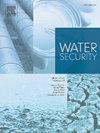Water and food insecurity & quality of life for deaf Nigerians: A community-based cross sectional study
IF 4.3
Q1 Earth and Planetary Sciences
引用次数: 0
Abstract
Drought and flooding caused by climate change as well as regional and global conflicts mean that access to both water and food is becoming increasingly precarious worldwide, particularly in developing countries. Deaf and disabled people worldwide have historically struggled to access basic needs, including access to nutritious food, sanitation and clean, potable water. Access to clean water and food is a daily challenge for many Nigerians, particularly in the northern regions. Our first-of-its kind exploratory study of 150 deaf Nigerians reports findings from a cross-sectional survey involving deaf Nigerians about their access to these essential resources. Our study, led by a joint team of deaf American and deaf Nigerian scholars, sheds light on deaf Nigerians’ diverse experiences accessing food, sanitation and potable water. We applied two logistic regression models to our data with having enough food and access to clean water as separate outcomes. Findings indicate that quality of life with respect to physical health is associated both with having access to clean water and having enough to eat. We discuss these findings in the context of geopolitical and social hurdles that deaf Nigerians face, including a lack of educational and employment advantages.
水和粮食不安全&生活质量为聋人尼日利亚:以社区为基础的横断面研究
气候变化以及区域和全球冲突造成的干旱和洪水意味着,在世界范围内,特别是在发展中国家,获得水和粮食正变得越来越不稳定。世界各地的聋人和残疾人历来难以获得基本需求,包括获得营养食品、卫生设施和清洁饮用水。获得清洁的水和食物是许多尼日利亚人每天面临的挑战,特别是在北部地区。我们首次对150名失聪尼日利亚人进行了探索性研究,报告了一项涉及失聪尼日利亚人获取这些基本资源的横断面调查的结果。我们的研究由一个由美国聋人和尼日利亚聋人学者组成的联合小组领导,揭示了尼日利亚聋人在获得食物、卫生设施和饮用水方面的不同经历。我们对我们的数据应用了两个逻辑回归模型,将获得足够的食物和获得清洁的水作为单独的结果。调查结果表明,与身体健康有关的生活质量与获得清洁水和有足够的食物有关。我们在失聪的尼日利亚人所面临的地缘政治和社会障碍的背景下讨论这些发现,包括缺乏教育和就业优势。
本文章由计算机程序翻译,如有差异,请以英文原文为准。
求助全文
约1分钟内获得全文
求助全文
来源期刊

Water Security
Earth and Planetary Sciences-Oceanography
CiteScore
8.50
自引率
0.00%
发文量
17
期刊介绍:
Water Security aims to publish papers that contribute to a better understanding of the economic, social, biophysical, technological, and institutional influencers of current and future global water security. At the same time the journal intends to stimulate debate, backed by science, with strong interdisciplinary connections. The goal is to publish concise and timely reviews and synthesis articles about research covering the following elements of water security: -Shortage- Flooding- Governance- Health and Sanitation
 求助内容:
求助内容: 应助结果提醒方式:
应助结果提醒方式:


